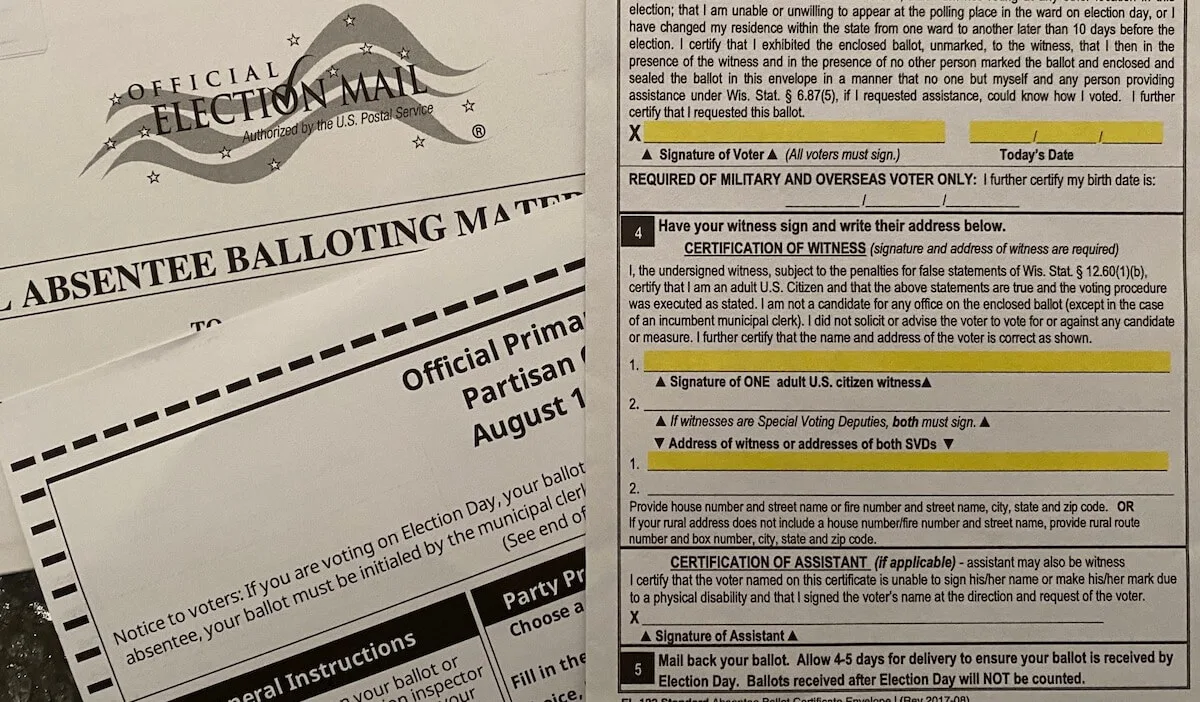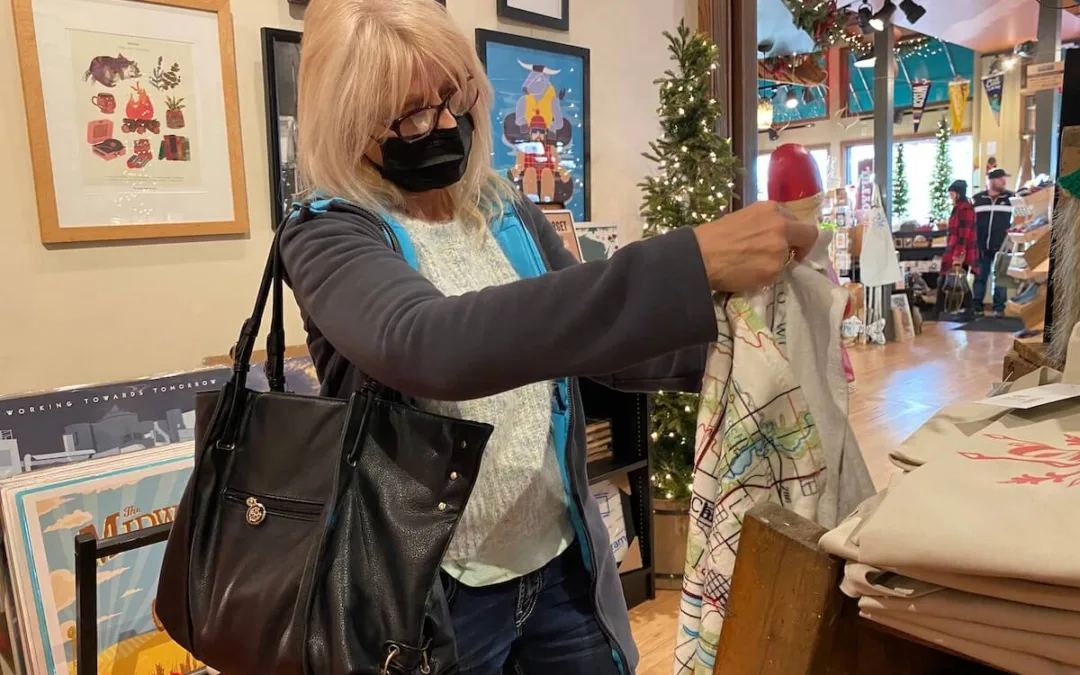
#image_title
#image_title
Wisconsin prepares for a repeat of last-minute judicial pinball as election rules could swing back and forth.
In a ruling reminiscent of what kicked off two levels of judicial pinball last April, a federal judge ruled Monday that Wisconsin absentee ballots that are mailed and postmarked on Election Day (Nov. 3) must be counted and, as a result, ballots arriving as late as Nov. 9 from an intentionally slowed-down US Postal Service must still be counted by local election clerks.
Judge William M. Conley’s ruling from the federal courthouse in Madison has similarities to courtroom drama that enveloped the spring general election which took place in the new and mysterious surroundings of the coronavirus pandemic. Both the Wisconsin Supreme Court and the US Supreme Court made last-minute rulings that increased safety concerns about the April 7 voting.
As in April, Conley on Monday again ordered a six-day extension of the period when absentee ballots are counted, to Monday, Nov. 9. Part of Conley’s April order—allowing time beyond election day for absentee ballots to be postmarked—was overturned by the US Supreme Court which ruled there must be a postmark of Apr. 3 or earlier. Thousands of ballots were invalidated due to pandemic-fueled surge of requests that could not be fulfilled in time for an Apr. 3 return deadline.
Monday’s ruling did not contain any language restricting the ability of local clerks to announce vote tabulations prior to Nov. 9. Last April, no vote totals were allowed to be made public until all of the valid absentee ballots had been counted.
The order released Monday resulted from Conley combining four separate election-related lawsuits. The ruling also gave a one-week extension for registering to vote online or by mail. Conley also lifted the state’s geographic restriction on people working in polling places. Current law says poll workers can work outside their own municipality but are still restricted to other locations inside their home county. Conley ruled people can serve as election officials anywhere in the state.
Conley also instructed the Wisconsin Elections Commission to use its more liberal interpretation of “indefinitely confined,” emphasizing that the term does not mean a voter has a total inability to travel outside of their residence. A similar case is going to be heard next week by the Wisconsin Supreme Court.
Conley ordered a seven-day delay in his own ruling to allow time for appeals.
The lawsuits at the center of Monday’s decision came from parties seeking greater flexibility in protecting the right to vote safely during the coronavirus outbreak.
Ensuring that absentee ballots postmarked on election day may provide a more accurate measure of the electorate, but it may also lead to a scenario described as a “red mirage” if Republicans—including President Trump, who is openly smearing the long validity of mail-in ballots—appear to have a small lead when in-person ballots are counted on election night only to see it disappear if enough absentee ballots from Democratic strongholds overcome that initial margin. Republicans may prematurely declare victory and challenge the validity of ballots across the country.
Politics

Biden makes 4 million more workers eligible for overtime pay
The Biden administration announced a new rule Tuesday to expand overtime pay for around 4 million lower-paid salaried employees nationwide. The...

Biden administration bans noncompete clauses for workers
The Federal Trade Commission (FTC) voted on Tuesday to ban noncompete agreements—those pesky clauses that employers often force their workers to...
Local News

Readers Poll: Top Bowling Alleys in Wisconsin
Looking for the best bowling in Wisconsin? Look no further! Our readers have spoken in our recent poll, and we have the inside scoop on the top...

8 Wisconsin restaurants Top Chef judges are raving about
Top Chef’s 21st season is all about Wisconsin, and on-screen, it’s already apparent that the judges feel right at home here. But, while filming in...



